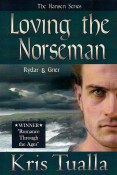We’ve had this discussion about the value and importance of professional copyediting but it seems that it’s a topic that just won’t die in the eBook Age. As I have noted before, too many authors believe that they are capable of doing everything themselves while producing a superior product. I admit that out of 1 million authors (in 2009, more than 1 million books were published) there are a handful who can do it all themselves and even do a very credible, if not superb, job — but it is only a handful.
Like writing, editing is a developed skill. That is, experience brings a higher level of editing quality — just as an author’s second novel is often better written than the first as the author’s experience grows. There is a significant level-of-quality difference between a well-experienced professional editor’s skill set and a nonprofessional editor’s skill set.
When we look at a sentence, we see what we expect. When we look at thick clouds, they look solid enough to walk on (do you remember being a child and talking about how someday you were going to walk among and on the clouds?), but as we know, our expectation that they can support us is a false expectation.
BUT, what we see is not what we get — the WYSIWYG conundrum!
The same is true of words on paper (or computer screen). We often see what we expect, not what is really there. If we always saw only what was really there, we could turn out perfect manuscripts every time. But the truth is that if you hand a manuscript to 5 different people, each of the 5 will find something that the other 4 missed.
Think about eyewitness identification. This is a field that has been explored by scientists for decades and the conclusion hasn’t changed: eyewitness identification is one of the least-reliable forms of evidence because the eyewitness has certain expectations that unconsciously get fulfilled, even if those expectations deviate from the facts. (If you haven’t watched it recently, I highly recommend Twelve Angry Men with an all-star cast led by Henry Fonda.)
Professional editors provide a dispassionate look at an author’s work. They provide a skilled, experienced eye that is trained to find the kinds of errors that the author, who is intimately familiar with the manuscript, will miss. A good author lives with his or her manuscript for months, lives with the characters, and lives with the plot. The author knows how the heroine spells her name and whether or not she is left-handed, the color of her eyes, and all the other important details. Consequently, it’s not unusual for an author who is self-editing to miss the misplaced “r” in Matra because the author expects to see Marta. We have trained ourselves to see it as it should be.
It is this role that the professional editor, the “indifferent” or “dispassionate” set of eyes, fills. The professional editor can stand back — aloof — from what the author has lived with and can note the misspelled or changed name, that in 20 other instances the heroine was left-handed but now is right-handed, the sentence construction that the author understands but the reader doesn’t. If nothing else, this last item can be the most valuable service the professional editor provides an author — making sure that the story, the plot, the characters can be followed by the reader.
Authors tend to forget that most readers read a novel once and then never look at it again. Novels are intended to entertain, which means non-intense reading. The reader doesn’t want to have to spend time trying to follow the storyline and certainly does not want to study the text to make it understandable.
But the author rarely is capable of standing in the reader’s shoes. The author knows where it should be going and expects it to go there; the reader doesn’t know, doesn’t have the intimate knowledge needed to draw everything together in some logical fashion. The author’s job is to draw it all together for the reader, but if the author can’t stand in the reader’s shoes, the author can’t honestly judge how well he or she has accomplished that task. The professional editor can, because the professional editor is disinterested; there is a difference between one’s passion and one’s job that enables one to stand back and look objectively at one’s job but with bias at one’s passion.
Professional editors bring many skills that are complementary to the author’s skills to the table. These skills cannot be brought to bear on the project by the author because the author cannot separate him- or herself from his or her writing. The author suffers from the WYSIWYG conundrum: the author sees what the author expects to see.
The authors who recognize this conundrum and who take steps to have their work professionally edited are the authors who enhance both their readers’ enjoyment and their likelihood of success in an overcrowded marketplace.
Success is much more than the number of downloads of free or 99¢ eBooks, especially when there is no way to know how many of those downloads actually were read or well thought of. Instead, success is having readers clamor for your books, talk about your books, express a willingness to pay a higher price for your books — all things that a professional editorial eye can help an author achieve by preventing the kinds of mistakes that turn readers away.
~~~
Rich Adin is a professional editor and the owner of Freelance Editorial Services, which provides editorial and production services to authors and publishers. He also authors a blog at An American Editor. The above article was written specially for Kris Tualla’s Author & Writing Blog and is printed here with permission.










So, so true! My editor recently caught the error ‘…his face between my things…” No, things is not what I meant to write and what I’m sure Word guessed. I’ll let you all figure out the right word though since this is a family show.:}
Thank goodness for good editors.
I had my hero’s head titled – instead of tilted. (I bet it said “Hot Guy”!)
*sheesh*
It is embarrassing enough when one of my critique partners finds a silly mistake like they slept in a birth or got on a wagon and out of a buggy, but it would be horrifying for an editor to find it. I have found lately that there are words in some sentences that must have found their own way there, because I KNOW I would never type ‘that’ there. 🙂
I know what you are saying about me knowing so why doesn’t my reader know what’s in my head, too. It has been a long road for me to finally see and fix these errors before my critique partner finds them. I also find if I walk away from the work for a while, I can spot these mistakes – or at least some of them. A professional editor sounds like something we might all consider at some time – like when we ‘think’ our work is perfect.
For me, the key has been to shove my ego aside and listen to what my beta-readers say. They are almost ALWAYS right, and even when they are wrong (no, recipes in the early 1800’s WERE called “receipts”) if they are wrong in droves, I’ll change it. Better that, than trip them up mid-scene, I suppose!